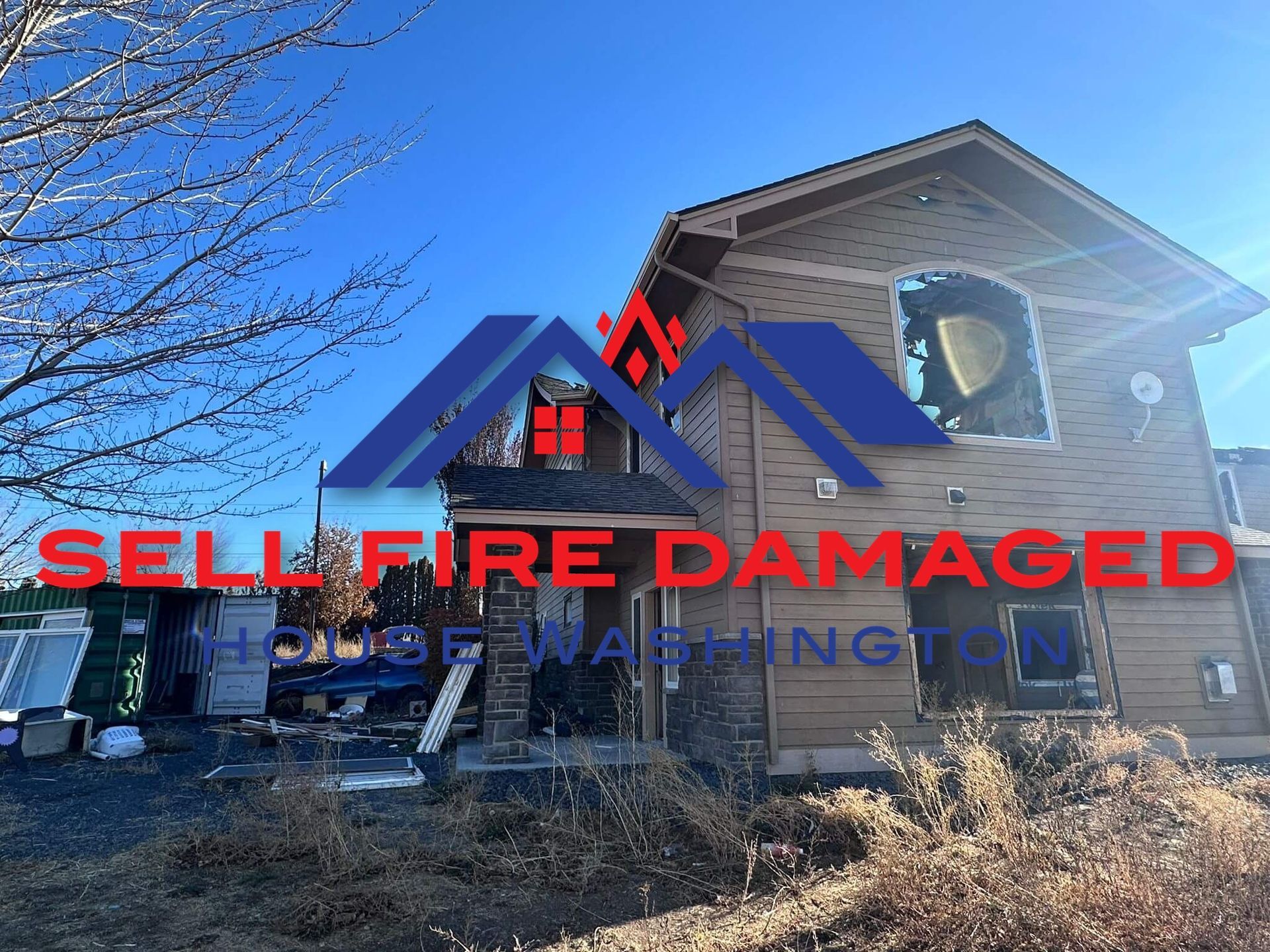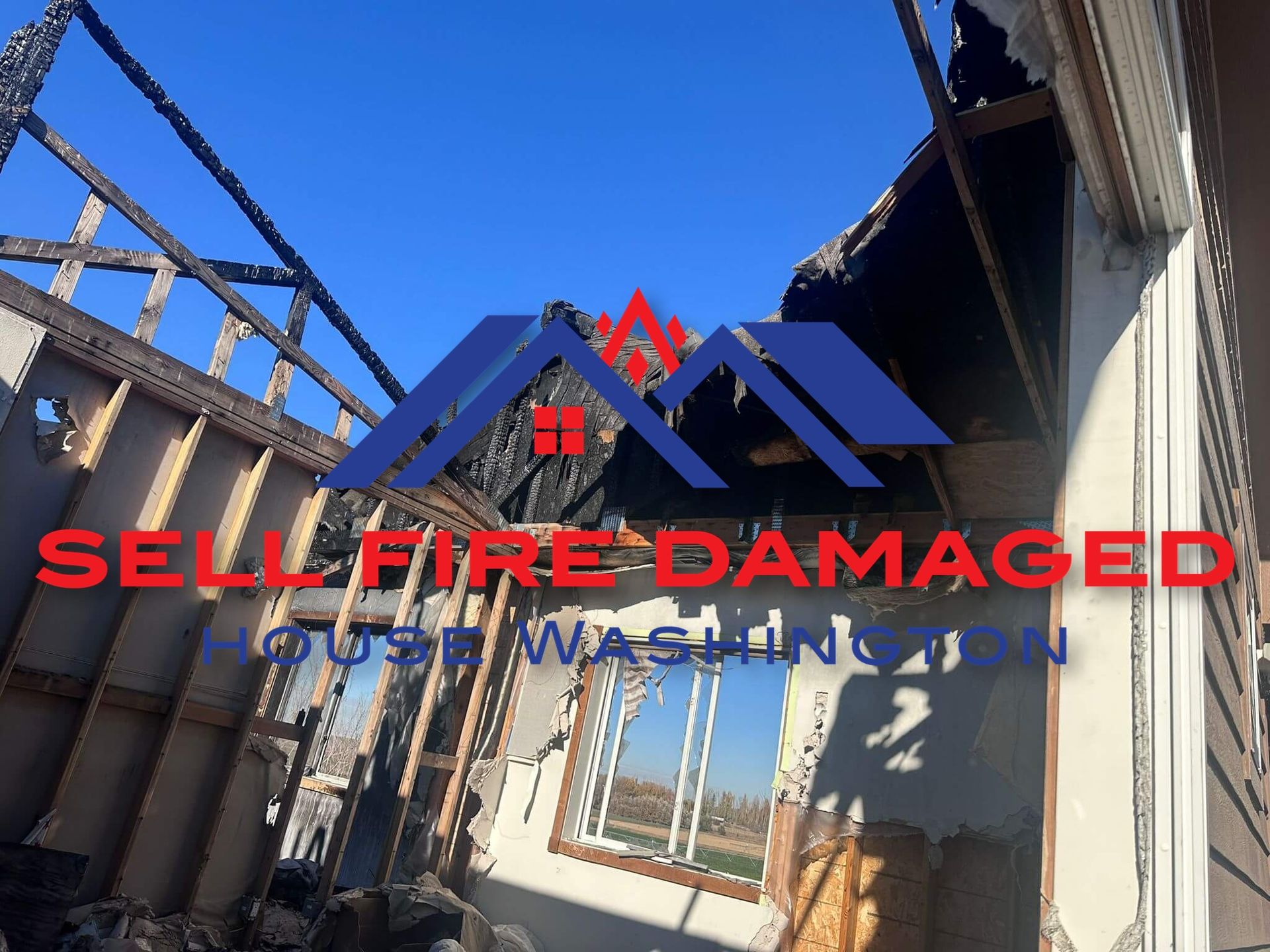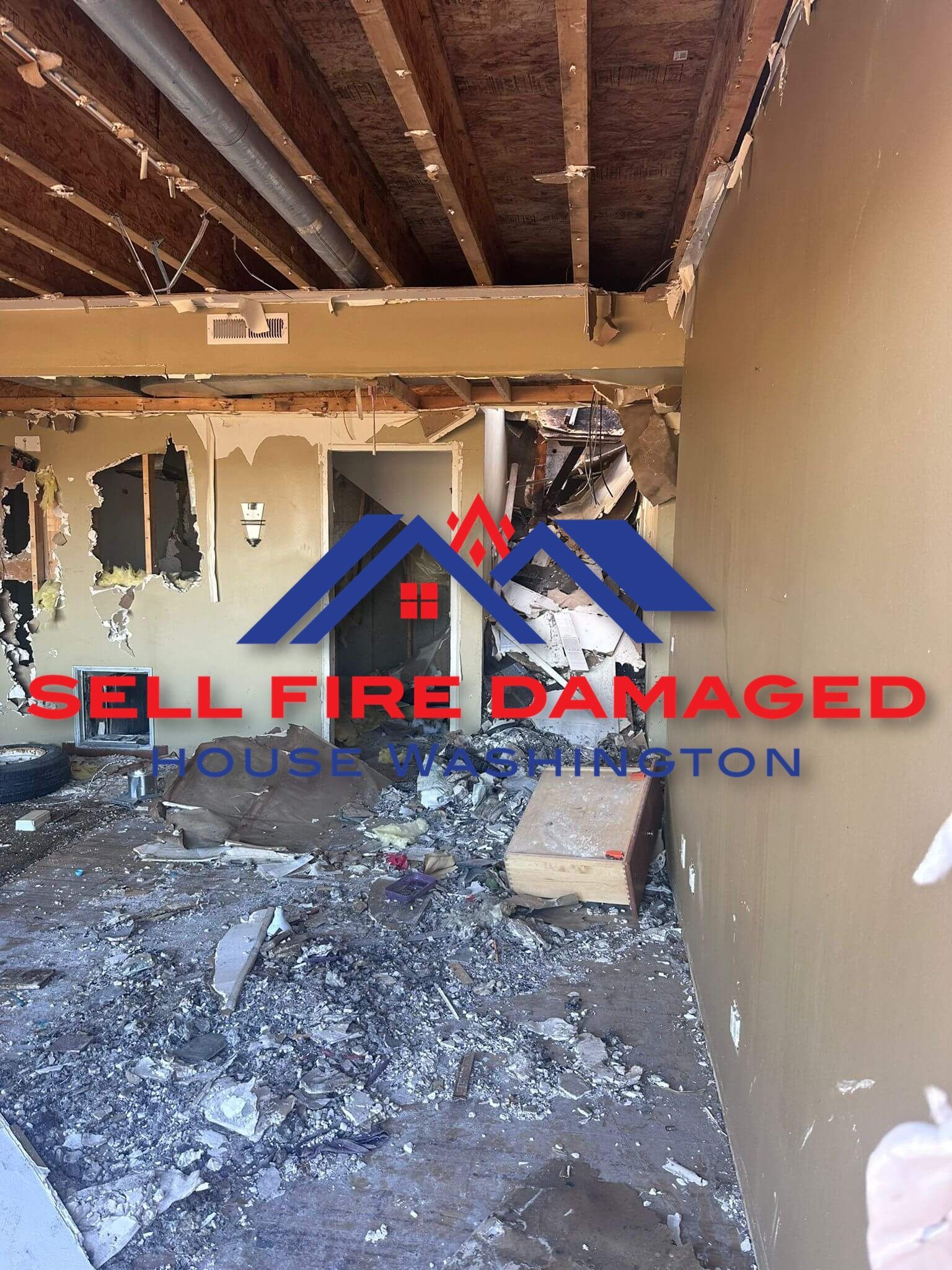Do You Have To Disclose Fire Damage When Selling A House In Washington
Published on December 22nd, 2024
Free Offer Form
We will get back to you as soon as possible.
Please try again later.
Property disclosure documents are necessary when selling a house. Sellers and homeowners must supply accurate information about the property's condition to their possible buyers.
Understanding these prerequisites are essential for anyone selling a house.
This article discusses whether you have to disclose fire damage when selling a house and the legal obligations and potential consequences for vendors and buyers.
Role of Property Disclosure in Real Estate In Washington
In real estate transactions, property disclosure is essential to promote honesty and integrity between vendors and buyers.
It offers crucial details about the conditions of the home.
Understanding Property Disclosure
Put simply, this is a document that provides detailed information about a property's situation, history, and potential issues to potential buyers during a real estate transaction.
The seller's disclosure helps buyers make informed decisions and understand the property's state.
While some vendors may opt to sell a house "as is," it's important to remember that disclosing damage remains a critical ethical and legal obligation in real estate transactions.
Importance of Property Disclosure
Real estate transactions must include property disclosure because it fosters transparency, protects all parties involved, and lowers the likelihood of legal issues.
For example, if expensive repairs were performed on a home and required the homeowners to move to temporary housing, this information must be disclosed to potential buyers.
Common Misconceptions about Property Disclosure
These misconceptions include the following: only major issues need exposure, new properties are exempt, and vendors are responsible for post-sale issues.
However, the seller's disclosure document includes major and minor problems, and ongoing responsibility varies by jurisdiction.
NOTE: When selling a house, if the fire department was called to respond when the house fire occurred in the past, this information typically falls under the category of information that the vendor is required to provide to a prospective buyer.
Do You Have to Disclose Fire Damage When Selling a House In Washington?
This section explores the legal obligations, ethical dimensions, and potential ramifications of disclosing damage in real estate transactions.
Legal Requirement of Fire Damage Disclosure
Sellers are legally obligated to disclose any previous damages to the house, ensuring transparency and protecting the buyer from hidden issues.
The extent varies by jurisdiction, but failure could lead to legal disputes and hamper the sales process.
Consequences of Not Disclosing Fire Damage
Don't withhold information from buyers. If a house has experienced an electrical fire, sellers must disclose this information to potential buyers when selling a house.
Failing to disclose damage during a home sale can lead to legal issues, financial implications, loss of trust, negotiation challenges, voided sales, legal penalties, and a negative reputation in the real estate market.
The seller should follow all state and local laws to ensure they don't overlook critical information.
NOTE: When selling a house, it's essential to disclose any previous termite treatment, as well as any extensive damage that may have occurred in the past, to ensure transparency with potential buyers.
Property Disclosure Laws in Different Regions In Washington
This section explores how these laws differ across regions.
Property Disclosure Laws in New York
New York's laws require brokers to provide accurate information about a property's situation, including structural integrity, repairs, and potential defects like plumbing.
Certain disclosures must be provided, like any known hazardous materials, such as asbestos or lead paint, that may have been present in your house before any renovations.
Water testing results for mold growth and radon gas are recommended but not mandatory. Understanding these laws is important for informed decisions for both you and your buyers.
Property Disclosure Laws in California
California's laws mandate homeowners to disclose detailed information about a property's state, including structural, mechanical, and environmental aspects.
The primary legal framework is the TDS (Transfer Disclosure Statement), which covers past repairs, renovations, water damage, pest infestations, legal disputes, and natural hazards.
NOTE: Not all buyers are interested in a fire-damaged house, but some firms can help find a buyer. These firms provide cash offers for homes, and you can ask them for a cash offer. After receiving a cash offer, remember to disclose fire damage.
Buying a Fire Damaged House In Washington - Risk Factors and Benefits

Buyers interested in real estate investments often focus on identifying fire-damaged properties as they plan on purchasing and rehabilitating them.
This section covers the risks and benefits of buying fire-damaged houses. It discusses potential pitfalls, rehabilitation prospects, and strategic considerations for buyers.
Understanding the Potential Risks
Real estate agents should understand the risks of purchasing a fire-damaged house.
These include structural integrity issues, hidden damage, health hazards, insurance, financing, repair costs, and the time investment.
Financial Benefits of Buying Fire-Damaged Houses
Fire-damaged properties offer financial benefits such as a lower price, potential appreciation, customization opportunities, reduced competition, creative financing, rental income, and tax incentives.
However, these advantages come with inherent risks and challenges like the potential costs, time commitment, and feasibility.
Consult experts and do your due diligence to maximize the financial benefits of buying fire-damaged houses.
You can get a cash offer for your fire-damaged house, and some firms buy houses in any condition. You can call them to get a fair cash offer or a cash offer within 24 hours of visiting your house.
Practical Guide to Selling a Fire-Damaged House In Washington
This section will focus on attracting potential buyers for fire-damaged properties, highlighting the unique opportunities and investment potential these properties offer.
This section provides insights into selling a house.
Preparation for the Sale Process
Preparing to sell a fire-damaged house involves several important steps.
- Assessment and Documentation: Document all significant damage, including structural damage, damaged mechanical systems, and other areas affected by the previous fires, smoke, or water.
- Consult Experts: Engage professionals, such as an experienced real estate attorney, lawyer, contractor, appraiser, and inspector, to provide an accurate asking price. They can also explain your legal rights.
- Repair and Restoration Estimates: Obtain detailed estimates for house repairs. This information will be crucial for pricing and negotiations with prospective buyers.
- Research Local Regulations: Familiarize yourself with local building codes and regulations that might negatively impact the repair and restoration process.
- Insurance Claims: If the fire damage is recent and covered by insurance, work with your insurance company to handle the insurance claim and necessary repairs before selling the house.
- Requirements: Understand your legal obligations to disclose previous fire damage and related issues to prospective buyers. A seller's disclosure statement builds trust and avoids legal complications.
- Pricing Strategy: Set a fair price for the fire-damaged house after considering repair costs, market conditions, and potential resale value after restoration.
- Market Research: To understand buyer preferences, trends, and competition, research the local real estate market. This insight will help tailor your marketing strategy.
- Assemble Documentation: Gather the relevant disclosure documents and detailed records, including repair estimates, inspection reports, insurance information, and repair warranties.
- Consider Professional Help: Engage an experienced real estate agent when selling a house. Their expertise can help you navigate the sale process.
EXPERT TIP: Account for closing costs before selling a home. Both the home's buyer and seller must agree on the closing cost.
Essentials for Marketing Fire-Damaged Properties
Marketing fire-damaged properties requires a strategic approach to showcase the property despite its challenges. Here are essential steps for effectively marketing fire-damaged properties:
- Transparent Listing Description: Craft an honest and detailed listing description that includes information about the previous fire damage, repair estimates, and potential for restoration.
- Highlight Property Features: Emphasize any unique or salvageable features that attract buyers, such as the property's location, layout, and architectural elements.
- Informed Pricing: Set a competitive price that reflects the property's current market value and the estimated cost of repairs.
- Highlight Safety Measures: Address safety concerns by showcasing fire prevention or safety measures implemented since the house fire occurred.
- Provide Documentation: Share the full disclosure form with the following information: repair estimates, home inspection reports, and warranties.
Marketing a fire-damaged property requires a delicate balance of honesty and optimism, effectively conveying their potential and transparency to attract buyers.
Understanding the Buyer's Perspective
When selling a house, it's important to understand the buyer's viewpoint. They expect transparency and a fair cost.
Inform them about the risks and rewards and be flexible during negotiations.
Cater to investors specializing in rehabilitating properties and offering solutions to their concerns.

Frequently Asked Questions
This section discusses more information about disclosing fire damage in transactions, aiming to provide clarity for vendors and buyers.
Can I Sell a House Without Disclosing Fire Damage?
In many jurisdictions, before selling a house with fire-related damages, you must disclose information about the fire damage. If the property has been fire-damaged and the seller failed to disclose this info, it can lead to legal problems.
Understanding and adhering to the prerequisites in your area is critical to ensure transparency and compliance with the law.
What Happens if Fire Damage Is Discovered After the Sale?
Uncovering fire damage can have a significant impact on property values after a fire, potentially leading to legal difficulties between buyers and homeowners. If you're the seller, prioritize disclosing fire damage to any potential clients.
The buyer may have grounds to take legal action for misrepresentation or failure to disclose damages. This could result in the seller being held liable for repair costs, fire damages, or even a sale reversal.
Homeowners must be transparent and upfront about any known fire or smoke damage to avoid potential legal disputes after the sale.
What Other Information Is Necessary to Disclose When Selling a Property?
Fire damage isn't the only information a seller should mention to their potential buyers. They also need to mention the following.
- Structural issues
- Past repairs
- Known defects
- Environmental hazards
- Pest infestations
- Water damage
- Legal disputes
- Neighborhood issues
- Safety hazards
- Home insurance claims
- Ownership history
- Financial liabilities
Are There Any Exceptions to Disclosure Laws?
Yes, these laws have some exceptions, but laws vary based on jurisdiction. Common exceptions might include:
- Sales to Family Members: Some regions might have reduced or different prerequisites for sales between family members.
- Foreclosures or Short Sales: In certain cases, banks or lenders selling foreclosed properties might have limited knowledge of the property's condition, affecting their obligations.
- As-Is Sales: Some jurisdictions may have reduced essentials for properties sold "as-is," but home sellers should still disclose known issues.
- New Construction: In some areas, newly constructed homes might have different disclosure requirements, as the house hasn't been inhabited yet.
Understanding the specific exceptions and laws in your area is essential. Conferring with a real estate attorney can help you comply with the applicable law.
Conclusion
Disclose fire damage in property transactions to foster trust and transparency. Even in those states that are "buyer beware states." Neglecting this can lead to legal disputes and financial setbacks.
Understanding the laws, including fire damage specifics, is crucial for navigating real estate transactions and upholding market integrity.
Sticking to these regulations guarantees fairness and equity for all stakeholders.
Free Offer Form
We will get back to you as soon as possible.
Please try again later.
We Buy fire damaged homes all over WA
List of Services
-
Seattle
-
Spokane
-
Tacoma
-
Vancouver
-
Bellevue
-
Kent
-
Everett
-
Spokane Valley
-
Renton
-
Federal Way
-
Yakima
-
Bellingham
-
Kirkland
-
Auburn
-
Kennewick
-
Pasco
-
Redmond
-
Marysville
-
South Hill
-
Sammamish
-
Richland
-
Lakewood
-
Shoreline
-
Lacey
-
Olympia
-
Burien
-
Bothell
-
Bremerton
-
Lynnwood
-
Edmonds
-
Puyallup
-
Lake Stevens
-
Issaquah
-
Parkland
-
Longview
-
Mount Vernon
-
Wenatchee
-
Spanaway
-
University Place
-
Graham
-
Walla Walla
-
Pullman
-
Des Moines
-
SeaTac
-
Orchards
-
Maple Valley
-
Camas
-
Tumwater
-
Moses Lake
-
Mill Creek East
-
Mercer Island
-
Woodinville
-
Medina
All Rights Reserved | Sell Fire Damaged House Washington
Terms & Conditions - Privacy Policy - Sitemap


